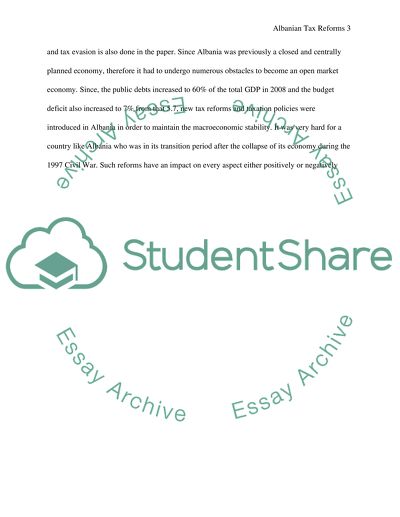Cite this document
(“To what extent did the 2008 tax reform in Albania affect/ improve its Essay”, n.d.)
To what extent did the 2008 tax reform in Albania affect/ improve its Essay. Retrieved from https://studentshare.org/macro-microeconomics/1655282-to-what-extent-did-the-2008-tax-reform-in-albania-affect-improve-its-growth-and-development
To what extent did the 2008 tax reform in Albania affect/ improve its Essay. Retrieved from https://studentshare.org/macro-microeconomics/1655282-to-what-extent-did-the-2008-tax-reform-in-albania-affect-improve-its-growth-and-development
(To What Extent Did the 2008 Tax Reform in Albania Affect/ Improve Its Essay)
To What Extent Did the 2008 Tax Reform in Albania Affect/ Improve Its Essay. https://studentshare.org/macro-microeconomics/1655282-to-what-extent-did-the-2008-tax-reform-in-albania-affect-improve-its-growth-and-development.
To What Extent Did the 2008 Tax Reform in Albania Affect/ Improve Its Essay. https://studentshare.org/macro-microeconomics/1655282-to-what-extent-did-the-2008-tax-reform-in-albania-affect-improve-its-growth-and-development.
“To What Extent Did the 2008 Tax Reform in Albania Affect/ Improve Its Essay”, n.d. https://studentshare.org/macro-microeconomics/1655282-to-what-extent-did-the-2008-tax-reform-in-albania-affect-improve-its-growth-and-development.


